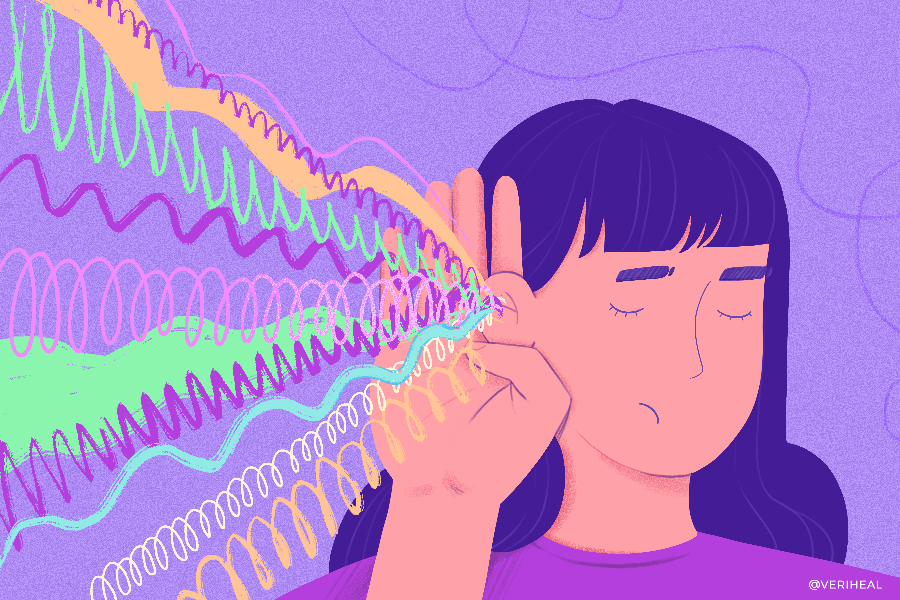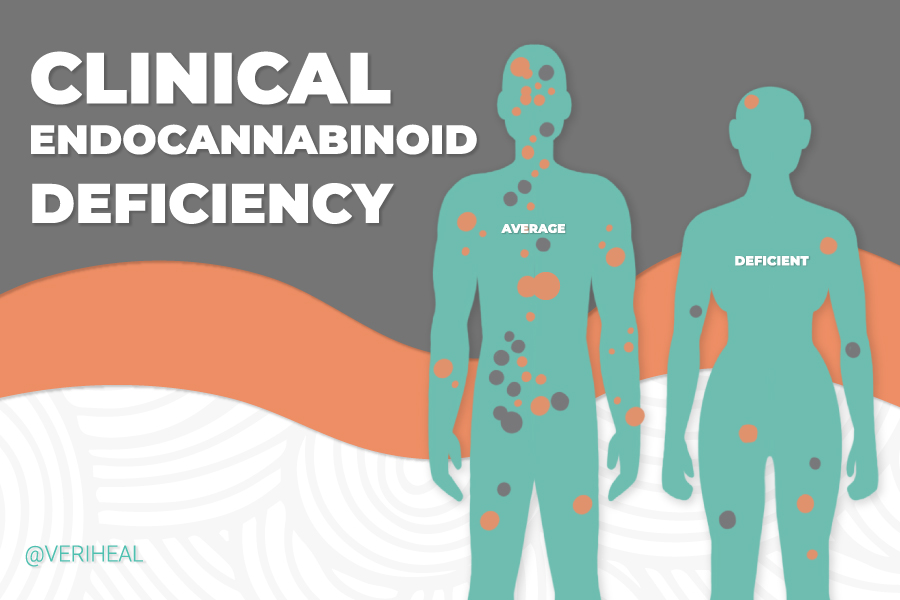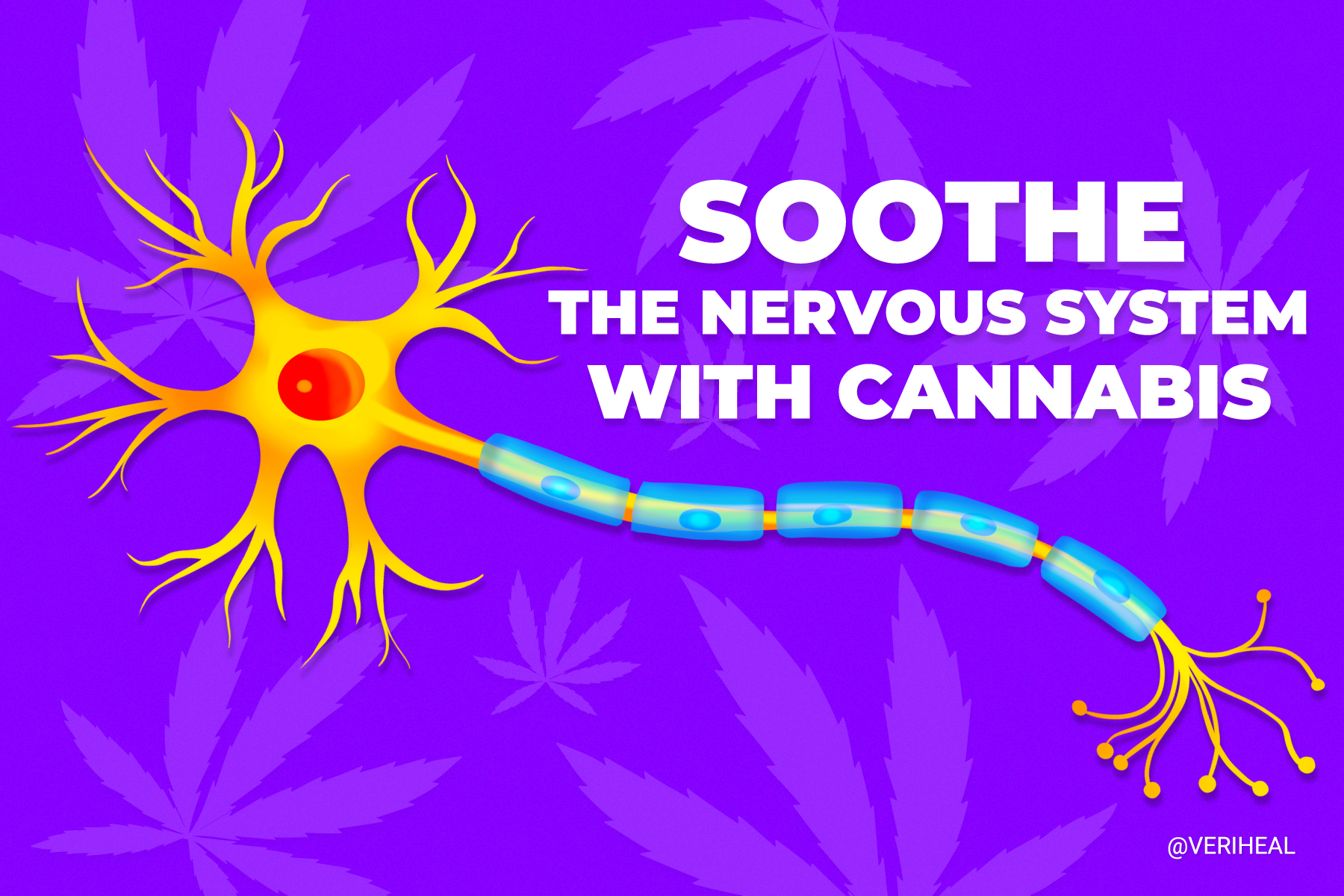Hearing Loss and Tinnitus Relief: Can Medical Cannabis Help?
- What are the Signs, Symptoms and Types of Hearing Loss?
- Hearing Loss: Causes and Complications
- Are Cannabinoids a Good Treatment Option for Hearing Loss?
- How Does the Endocannabinoid System (ECS) Play a Role in Treating Hearing Loss?
- What Preparations of Cannabis are Suitable for Hearing Loss?
- Talking to Your Doctor About Hearing Loss Diagnosis and Treatments
By the year 2050, almost 2.5 billion people are expected to have some level of hearing loss. Of those people, approximately 700 million will necessitate hearing rehabilitation. This is according to the World Health Organization (WHO), which also claims that more than one billion young adults face the risk of avoidable (yet permanent) hearing loss as a result of unsafe listening habits (17). There are also many other causes of hearing loss related to infection, genetic factors and inherited conditions, certain drugs, birth asphyxia, smoking, injury, chronic diseases, and more (14).
Hearing loss is not just a problem faced by the aging population, despite being prevalent among the older patient demographic. Based on data published by the National Institute on Deafness and other Communication Disorders, hearing problems are most common in people aged 60-69 (15). However, exposing the ears to sounds louder than 85 decibels can damage the delicate hairs inside the ears.
These tiny hairs, known as stereocilia, can be found on a spiraling inside the inner ear called the cochlea. The job of the stereocilia is to transform the vibrations emitted from sound waves into understandable neural signals. Your auditory nerve is responsible for sending neural signals to the brain.
Since many people don’t notice the symptoms of hearing loss until 30-50% of the stereocilia are damaged, it’s not uncommon for hearing loss to go unnoticed and, therefore, untreated (4). For those who are considering the use of cannabinoids, as well as those who are currently using cannabis, it’s good to know that there is a strong connection between cannabinoids, the ECS, and the auditory system, potentially offering relief from hearing problems and tinnitus symptoms.
What are the Signs, Symptoms and Types of Hearing Loss?
Hearing loss of up to 20 dB in both ears is still considered normal. However, anything between 20 dB and 40 dB is considered mild. In contrast, moderate hearing loss is classified as 41 to 60 dB of sound impairment, and severe hearing loss is classified as 61 to 80 dB. Profound hearing loss or deafness exceeds 81 dB (8).
The noise-induced hearing loss stems from oxidative stress in the cochlea (6). The three main categories of hearing loss are sensorineural hearing loss, conductive hearing loss, and mixed hearing loss (14). Let’s take a look at what each type involves:
- Sensorineural Loss (Inner Ear) — When the inner ear or the hearing nerve is inflicted by damage, a doctor will diagnose sensorineural hearing loss. Approximately 90% of adults endure this type of hearing loss, which can arise without warning when the hair cells contained within the cochlea become fragmented (11).
- Conductive Hearing Loss (Outer or Middle Ear) — Foreign objects or earwax buildup in the ear canal can prevent sound waves from traveling to the inner ear. This may result in conductive hearing loss, which can also arise from infections, bone abnormalities, eardrum perforation, and fluid accumulation in the middle ear space.
- Mixed Hearing Loss (Combination of the Two) — It is possible to experience both conductive and sensorineural hearing loss simultaneously. When this happens, a doctor will diagnose mixed hearing loss.
Whatever type of hearing loss you are diagnosed with, a doctor will likely sub-categorize the medical condition based on the characteristics of the problem. Hearing loss may also be categorized as follows:
- Single-sided — Just one ear is affected by hearing impairment
- High-frequency — High-pitched sounds are difficult to hear
- Noise-notch — Certain high-pitched sounds are difficult to distinguish
- Mid-range — Mid-range sounds cannot be appropriately registered with auditory processing
- Low-frequency — Low-pitched noises are hard to hear
- Sudden — Rapid onset hearing loss
- Flat — Pitches of all levels are hard to hear
- Temporary hearing loss — The hearing impairment may resolve without treatment
According to WebMD, several different symptoms may arise in a person with hearing impairment, such as gradual hearing loss, ear fluid drainage, and a feeling of fullness in the ears. The following symptoms may also indicate a problem:
- Earache
- Problems distinguishing sounds when background noise is present
- Muffled sound and voices
- Problem understanding high-pitched voices, e.g., children and females
- Tinnitus
- Balance impairment
- Difficulty hearing high-pitched sounds (16)
Hearing Loss: Causes and Complications
Hearing loss can be inherited, and developed over time with chronic diseases and infections, smoking, or it can occur with age. Middle ear diseases like otosclerosis, inner ear problems like Ménière’s disease, ototoxic medications, autoimmune inner ear disease, traumatic brain injury (TBI), acoustic neuroma, and presbycusis are some other common causes of hearing loss (1).
Studies have connected untreated hearing loss to widespread emotional health conditions, proving the importance of seeking treatment. Examples of the complications associated with hearing impairment include the following:
- Irritability
- Anger
- Fatigue
- Stress
- Depression
- Tension
- Social withdrawal
- Loneliness
- Decreased alertness (7)
Are Cannabinoids a Good Treatment Option for Hearing Loss?
Cannabis-related products possess the potential to alleviate hearing damage. The plant is naturally enriched with more than 500 different compounds, many of which are cannabinoids (12). Almost 150 different phytocannabinoids (plant-produced cannabinoids) and at least 13 endocannabinoid-like compounds have been identified so far (3).
But what exactly are cannabinoids, and what is their connection to hearing loss? These multi-purpose compounds play an essential role in neural processing in the healthy auditory system. According to a 2020 research report titled “Cannabinoids, Inner Ear, Hearing, and Tinnitus: A Neuroimmunological Perspective,” cannabinoids may exert a “protective reaction to auditory damage, and in most non-auditory circuits known to be associated with tinnitus (10).”
Plus, endocannabinoid modulation of neuroinflammatory responses in the auditory system could represent a unique pharmacological approach to hearing loss and tinnitus. Different forms of cannabinoids harbor some shared and specific properties. One potent cannabinoid, cannabidiol (CBD), acts on pathways related to cochlear damage protection.
CBD is a natural anti-inflammatory, anxiolytic, and neuroprotective compound. Its psychotropic cousin, delta-9 tetrahydrocannabinol (THC), is a natural relaxant with sedating properties. Therefore it may assist hearing loss patients in getting adequate rest.
Despite the therapeutic benefits of cannabis and its strong link to the auditory system, further research must be carried out to fully understand the medical power of CBD and other cannabinoid-based medicines for hearing loss.
How Does the Endocannabinoid System (ECS) Play a Role in Treating Hearing Loss?
The endocannabinoid system (ECS) is a biological network in all animals, including vertebrates and invertebrates (13). It is made up of endocannabinoids — endogenous lipid-based retrograde neurotransmitters — that bind to cannabinoid receptors and cannabinoid receptor proteins. Both of which manifest throughout the vertebrate central nervous system and peripheral nervous system.
Numerous studies have detected cannabinoid receptors in the auditory system at peripheral and central levels (5). Because of this new research and the fascinating antioxidant and neuroprotective properties of cannabinoids, doctors and scientists are becoming increasingly interested in cannabinoid signaling in hearing, particularly in cases of tinnitus.
Since auditory problems may also be impacted by anxiety, attention circuits, and memory, where cannabinoid effects have been well documented, it stands to reason that ECS stimulation could influence hearing ability, not to mention other avenues of health (5). However, the extent to which cannabinoids can reduce tinnitus severity and hearing loss symptoms depends on the individual case and the strain being used from the cannabis plant.
What Preparations of Cannabis Are Suitable for Hearing Loss?
Some of the main appeals associated with medical cannabis use to treat hearing loss include the diversity in product options and the fact that cannabis is largely non-addictive. The same cannot be said for opioids, which can ignite various unwanted side effects and adverse effects, including drowsiness, respiratory depression, and a much higher chemical dependence probability. Different cannabis preparations are available for marijuana users, and your choice should reflect your personal preferences and the level of symptomatic relief you require.
Edibles, pills, capsules, and tablets offer the most extended time-release benefits and deliver controlled doses within 5-12 hours. Opt for dissolvable cannabis powder, oral tinctures, or transdermal patches for fast absorption into the bloodstream and high bioavailability. There are also vapes and smokable cannabis flower, which are recommended choices for patients who want to experience the effects of cannabinoids within minutes.
Talking to Your Doctor About Hearing Loss Diagnosis and Treatments
Before you can delve into the discussion with your doctor about using cannabis for hearing loss and tinnitus treatment, they must first conduct a test to pinpoint the problem. With a diagnosis and so long as you reside in a medical marijuana-friendly state that features it on the list of qualifying criteria, you can obtain a written recommendation. Once you have a doctor’s approval, you can apply for a medical cannabis patient card.
Your doctor will need to inspect your ear for likely causes of hearing loss, including infection-related inflammation, earwax buildup, and structural problems. Some of the most common tests to diagnose hearing loss include audiometer tests, physical examinations, general screening tests, app-based hearing tests, and tuning fork tests. Common treatments for hearing loss include hearing aids, cochlear implants, and wax blockage removal (9).
Complementary Treatments Worth Discussing with Your Doctor
The terms “complementary medicine,” “complementary and alternative medicine,” and “complementary therapies” are used to describe a vast assortment of resources aimed at strengthening the body’s natural healing capabilities.
Complementary medicine generally welcomed in cases of hearing loss includes cannabis, acupuncture, and Chinese herbal medicines. Chinese herbal medicines (CHM) have also emerged as a commonly-used complementary therapy for patients, including Ginkgo biloba, Panax ginseng, and Astragalus propinquus (2).
Although CHM has been medically proven as a safe and effective complementary medicine method for inflammatory conditions, such as those that transpire inside the ear canal, the effect of CHM use on hearing loss in rheumatoid arthritis patients remains uncertain. However, integrating CHM (as well as the other complementary therapies featured in this section) with conventional treatment could reduce the risk of HL in patients.
Remember that while medical marijuana use and other complementary medicines can be beneficial for you or a loved one with hearing loss, you must continue using any medication(s) and treatments your doctor prescribes.
Note: The content on this page is for informational purposes only and is not intended to be professional medical advice. Do not attempt to self-diagnose or prescribe treatment based on the information provided. Always consult a physician before making any decision on the treatment of a medical condition.
1. American Speech-Language-Hearing Association. (n.d.). Causes of hearing loss in adults. American Speech-Language-Hearing Association. Retrieved October 27, 2022, from https://www.asha.org/public/hearing/causes-of-hearing-loss-in-adults/
2. Castañeda, R., Natarajan, S., Jeong, S. Y., Hong, B. N., & Kang, T. H. (2019). Traditional Oriental Medicine for sensorineural hearing loss: Can ethnopharmacology contribute to potential drug discovery? Journal of Ethnopharmacology, 231, 409–428 https://pubmed.ncbi.nlm.nih.gov/30439402/
3. Citti, C., Linciano, P., Russo, F., Luongo, L., Iannotta, M., Maione, S., Laganà, A., Capriotti, A. L., Forni, F., Vandelli, M. A., Gigli, G., & Cannazza, G. (2019). A novel phytocannabinoid isolated from Cannabis Sativa L. with an in vivo cannabimimetic activity higher than Δ9-tetrahydrocannabinol: Δ9-tetrahydrocannabiphorol. Scientific Reports, 9(1). https://www.nature.com/articles/s41598-019-56785-1
4. Eyvazzadeh, A. (2020, March 10). High frequency hearing loss: Causes, risk factors, and treatments. Healthline. Retrieved October 27, 2022, from https://www.healthline.com/health/high-frequency-hearing-loss
5. Ghosh, S., Stansak, K., & Walters, B. J. (2021). Cannabinoid signaling in auditory function and development. Frontiers in Molecular Neuroscience, 14. https://www.frontiersin.org/articles/10.3389/fnmol.2021.678510/full
6. Henderson, D., Bielefeld, E. C., Harris, K. C., & Hu, B. H. (2006). The role of oxidative stress in noise-induced hearing loss. Ear & Hearing, 27(1), 1–19. https://pubmed.ncbi.nlm.nih.gov/16446561/
7. Impacts of untreated hearing loss. The Center for Audiology. (n.d.). Retrieved October 27, 2022, from https://centerforaud.com/impacts-of-untreated-hearing-loss
8. InformedHealth.org [Internet]. Cologne, Germany: Institute for Quality and Efficiency in Health Care (IQWiG); 2006-. Hearing loss and deafness: Normal hearing and impaired hearing. 2008 May 15 [Updated 2017 Nov 30]. Available from: https://www.ncbi.nlm.nih.gov/books/NBK390300/
9. Mayo Foundation for Medical Education and Research. (2021, April 16). Hearing loss. Mayo Clinic. Retrieved October 27, 2022, from https://www.mayoclinic.org/diseases-conditions/hearing-loss/diagnosis-treatment/drc-20373077
10. Perin, P., Mabou Tagne, A., Enrico, P., Marino, F., Cosentino, M., Pizzala, R., & Boselli, C. (2020). Cannabinoids, inner ear, hearing, and tinnitus: A neuroimmunological perspective. Frontiers in Neurology, 11. https://www.ncbi.nlm.nih.gov/pmc/articles/PMC7719758/
11. Platelet rich plasma (PRP): A revolutionary treatment of sensorineural … (n.d.). Retrieved October 31, 2022, from https://www.researchgate.net/publication/337731185_Platelet_Rich_Plasma_PRP_A_Revolutionary_Treatment_of_Sensorineural_Hearing_Loss
12. Rock, E. M., & Parker, L. A. (2020). Constituents of Cannabis Sativa. Cannabinoids and Neuropsychiatric Disorders, 1–13. https://www.researchgate.net/publication/347689603_Constituents_of_Cannabis_Sativa
13. Silver, R. J. (2019). The endocannabinoid system of animals. Animals, 9(9), 686. https://www.ncbi.nlm.nih.gov/pmc/articles/PMC6770351/#:~:text=All%20animals%2C%20including%20vertebrates%20(mammals,found%20to%20have%20endocannabinoid%20systems
14. Types of hearing loss. Types of Hearing Loss | Johns Hopkins Medicine. (2022, September 13). Retrieved October 27, 2022, from https://www.hopkinsmedicine.org/health/conditions-and-diseases/hearing-loss/types-of-hearing-loss
15. U.S. Department of Health and Human Services. (2021). Quick statistics about hearing. National Institute of Deafness and Other Communication Disorders. Retrieved October 27, 2022, from https://www.nidcd.nih.gov/health/statistics/quick-statistics-hearing
16. WebMD. (n.d.). Conductive hearing loss: Causes, symptoms, and what you can do. WebMD. Retrieved October 31, 2022, from https://www.webmd.com/connect-to-care/hearing-loss/causes-and-symptoms-of-conductive-hearing-loss
17. World Health Organization. (n.d.). Deafness and hearing loss. World Health Organization. Retrieved October 27, 2022, from https://www.who.int/news-room/fact-sheets/detail/deafness-and-hearing-loss









